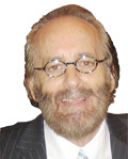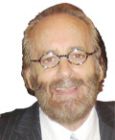Therapy
2012: Bad, Better, Best
Some psychology highs, lows, and major developments in 2012 are noted
Posted December 30, 2012
Psychology continues as one of the most popular of disciplines, a source for the media, a source for issues of health, education, relationships, understanding of behavior, and more. New sub-disciplines or cross-disciplines emerge frequently. In its 133rd year as a science, dating from Wundt's lab in 1879, psychology is clearly not a young discipline, but a "mature" one in years. There have been several important developments in this discipline in 2012, and I note below my own selective and non-exhaustive list.
1. "BIG V" versus "small v" Violence; a National Violence Project. As a nation with an unenviable record of gun violence, 2012 was not a good year. The slaughter of the innocent continued apace, and one worried that despite the decades of psychological research on mostly "small v" violence (studies using simulations, laboratory conditions and artificial simple tasks, self-report questionnaire assessments of aggressiveness, video games, etc., usually or often on psychology undergraduates) we have little to offer a grieving and distraught nation that is scientifically valid for "Big V" violence (mass murders, serial killers, gun homicides, etc.) as the direct psychological studies of such real-world Big V perpetrators are so few. We are too often involved after-the-fact, ex post facto, with scientifically weak prevention strategies, if any. The Newtown, CT, school massacre shook the nation along with other Big V gun massacres in 2012. "Never again, Enough!" became a national mantra. It became a mantra for psychology also, raising the challenge to do better. The pundit-psychologists had little that was solid and scientifically valid from their field to offer the public. I have proposed a National Violence Project, akin to the Mission to the Moon of the 1960's, where President Kennedy asked science to get a human to the moon and in but few years it happened, or the WWII Manhattan Project (although its end-game was Big V), or the more recent Human Genome Project, all directed at massive challenges that coordinated focused national scientific efforts met and overcame. Understanding and reducing Big V violence demands such a national focussed effort. We must commit to never seeing another year of such violence.
2. The Passing Of Icons In Psychology. Several giants of psychology died in 2012, including in cognitive psychology George Miller and Ulric Neisser; humanistic psychology M. Brewster Smith and Clark Moustakas; educational psychology Robert Glaser; methods Robyn Dawes; personality and character Christopher Peterson, among MANY OTHER significant losses to the discipline.Let me add a non-psychologist here, U.S.Senator Daniel Inouye, who was certainly one of psychology's greatest friends in the Senate for the many decades of his service (he was the second-longest serving Senator in U.S. history).He was enormously helpful to me during my Presidency of the American Psychological Association (APA), such as arranging a White House meeting of myself with Hillary Clinton over the then health care reform bill to ensure that psychology would be in it. His long-time Chief-of-Staff was the outstanding psychologist Patrick DeLeon, Ph.D., J.D., who went on to also become President of APA.
3. The DSM-5 Was Finalized. The revised manual was approved during the year by the Board of Trustees of the American Psychiatric Association and will be published Spring 2013. It was approved despite massive criticism from many quarters (with yours truly describing it as a "failed manifesto of mental illness"...). Concerns centered on several aspects, including the quality of the science involved; the pathologizing of mere extremes of everyday behavior (what might be called "the sickening of society"); the over-medicalization of some behaviors and its opposite--turning medical problems into psychological ones; to mention a few. A movement began in 2012 to re-conceptualize diagnosis from the ground up, to expand the involvement of professionals and other stakeholders world-wide in such an effort, via an ongoing/online International Summit on Diagnostic Alternatives (see F. Farley, 2012, "Reboot Diagnosis:DSM-5 Goes Live, Nascent Movement Arises" http://www.psychologytoday.com/em/112179 If you are interested in staying in touch with this development contact me at frank.farley@comcast.net.
4. A Hollywood Marquee Movie About Freud And Jung Appeared, Then Thankfully Sank From View! "A Dangerous Method", directed by scare-meister David Cronenberg and starring Keira Knightly, Viggo Mortenson and Michael Fassbender gave little insight into either of these two giants of psychology or their methods, and left the viewer with the image of Jung spanking a half-naked patient (Knightly going topless) as part of, presumably, his unique approach to therapy incorporating her corporal interests, representing 50 Shades of Jung that some of us had never been aware of. It was a movie that did little good for psychology, which was deeply disappointing as we get so few opportunities to have serious theory and practice represented in a major Hollywood production.(For a review done with my doctoral history of psychology class, go to http://www.apa.org/divisions/div46/Amplifier_Summer2012.pdf Pages 15-16)
5. Alleged Role Of Psychologists In Military Prisoner Interrogations. This topic continued to be a hot button issue, with a task force in the American Psychological Association taking a fresh look at this issue. Stay tuned in 2013.
6. New Scholarly Journals. Some new journals initiated in 2012 are highly relevant to the sorts of interests often expressed in Psychology Today and its blogs. Two examples are Psychology of Popular Media Culture published by the American Psychological Association, and Clinical Psychological Science of the Association for Psychological Science.
7. The Political Year. The science of political polling, something psychology has had a long-time role in, had major success in calling the 2012 Presidential outcome, with details. This accuracy required certain analyses of many polls, not just one poll. Additionally in 2012, research suggested emotion may be more important than ideology and political association in our judgments of politicians. And despite the heavy criticism of the omnipresent negative ads, they may be effective! There was some silly psychology in the political season, of course, such as proposals for alleged neurochemical differences between President Obama and Governor Romney that are causative in their behavior...But wild speculation is nothing new to our beloved discipline!
8. Global Consciousness And Facebook 1/7. With Facebook in 2012 reaching the astounding user base of almost 1/7 of the entire world's population, what effect can this be having on global psychology? The late Timothy Leary, psychologist and "lsd guru", argued that the internet was becoming a sort of collective consciousness, linking us all psychologically. Marshall McLuhan a generation ago proposed that a new "global village" would arise through telecommunications. It seems clear that Facebook, Twitter, YouTube, Google and so on are already facilitating major restructuring of nations' politics and power. And other possibilities for psychology in the new global village arise daily, including global education as in MOOCS, global cooperative science, global social life, global thinking, to name a few.
9. Appointment Of Peter Salovey As President Of Yale. A psychologist and co-originator of the highly influential concept of emotional intelligence was appointed Yale President, a university ranked in 2012 by U.S.News and World Report as one of the nation's top 3 universities. Few psychologists have ever achieved this eminence in academic leadership in America. Interestingly, his Ph.D dissertation supervisor, psychologist Judith Rodin, was herself once President of a top-ranked school, University of Pennsyvania. Among other outstanding honors to psychologists in the year was the election of Norman Anderson, CEO of the American Psychological Association, the world's largest association of psychologists, to the Institute of Medicine, an honor infrequently accorded psychologists.
10. Psychotherapy Success Story. The evidence supporting psychotherapy effectiveness grows.Related to this is an equally important development, that there is increasing evidence that the therapeutic success may be due more to the relationship factors in the therapeutic context than to the particular therapeutic method or techniques employed.




